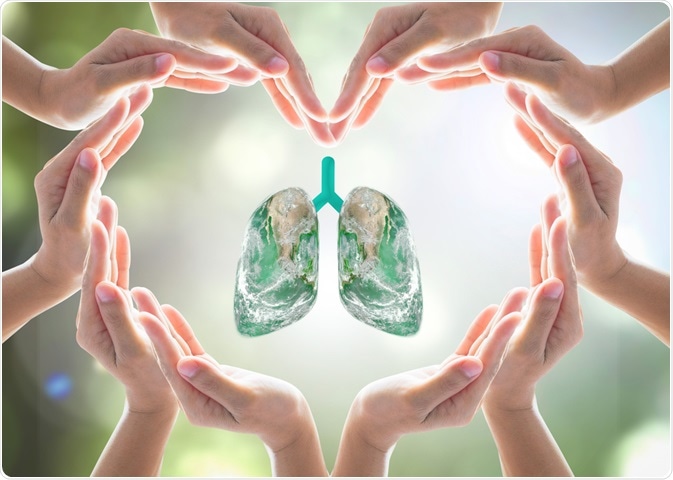While smoking is known to be the most prominent risk factor for lung cancer, people who do not have a history of smoking can still be affected by the disease. There are several other causes of lung cancer that can increase an individual’s risk of lung cancer, as outlined below.
 Image Credit: Chinnapong / Shutterstock
Image Credit: Chinnapong / Shutterstock
Radon gas
Exposure to radon gas is considered to be the leading cause of lung cancer in non-smokers. Although radon occurs naturally in an outdoor environment, concentrated levels of the gas associated with uranium deposits can be harmful. In particular, people who live or work in an environment that is contaminated with a high concentration of radon have been linked to a risk of lung cancer.
Passive smoke
Secondhand smoke that is inhaled as a result of other individuals smoking in the nearby vicinity can also have a negative impact on non-smokers. People who live with other individuals who smoke inside the home or car are at a markedly increased risk as a result.
The introduction of laws to restrict smoking in public places has helped to reduce this risk to the general public, although it is still responsible for many cases of lung cancer.
Occupational hazards
Some workplace environments have the potential to cause lung cancer, particularly when individuals are exposed to certain carcinogens, such as asbestos.
Other carcinogens that may be found in an occupational environment include:
- Asbestos
- Arsenic
- Silica
- Diesel exhaust
- Pesticides
- Dust
- Fumes
As a result of these occupational carcinogens, certain individuals are more likely to suffer from lung cancer caused by their working environment.
Air pollution
Air pollution, both indoors and outdoors, can contribute to lung cancer. In fact, outdoor pollution has formally been recognized as a carcinogen that causes lung cancer by the World Health Organization (WHO). This risk is greatest in regions that have a high concentration of PM2.5 particles, which is particularly harmful to the airways.
Genetic susceptibility
Some gene mutations have also been linked to the pathogenesis of lung cancer, which may be inherited from parents or acquired throughout an individual’s lifetime.
Specifically, a mutation in the EGFR or KRAS genes is linked to an increased risk of lung cancer, for both smokers and non-smokers. However, not all individuals who carry a mutation are affected by the disease and there are likely to be other factors that are also involved.
Diet
Although there is not sufficient evidence to suggest that a poor diet may directly or indirectly cause lung cancer in non-smokers, a nutritious diet has been linked to a protective effect. For this reason, a diet high in fresh fruit in vegetables is recommended to help reduce the risk of lung cancer and other cancers.
Other risk factors
Additionally, there are several other risk factors that may be associated with lung cancer and have a causative effect. These include:
- Hormone replacement therapy (HRT): Some studies show a slightly increased risk of lung cancer related to HRT, which should be balanced against the benefits of the therapy.
- Infections: Some infections may increase the risk of cancer, including the human papillomavirus (HPV), human immunodeficiency virus (HIV), and chlamydia pnuemoniae.
- Lung diseases: A history of other diseases that affect the lung can also increase the risk of lung cancer, such as tuberculosis, asthma, emphysema, and chronic obstructive pulmonary disease (COPD).
- Radiation: Exposure to ionizing radiation may increase the risk of lung cancer and other cancers.
Each of these risk factors can affect both smokers and non-smokers and may be involved in the pathogenesis of lung cancer.
References
Further Reading
Last Updated: Feb 24, 2023